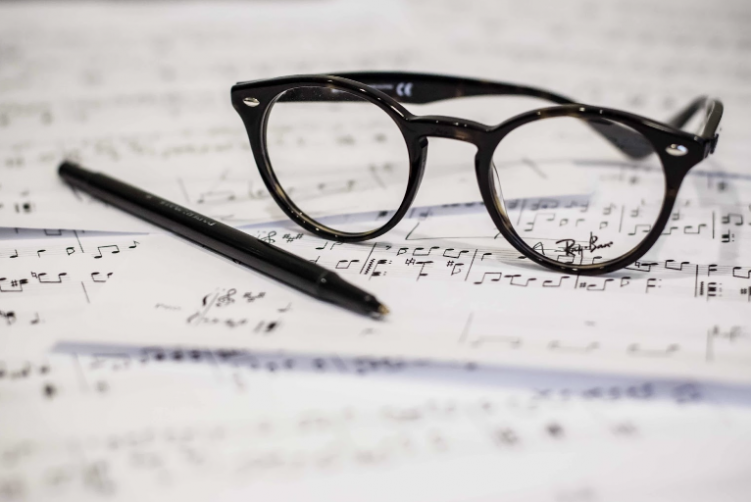Students who study music participate in a wide array of learning activities, any one of which could improve their academic achievement. They are said to do well in mathematics compared to their colleagues who don’t. This could be due to different factors or the environment they are exposed to. Musicians gain the ability to read notation, increase their listening skills, build skills for working in teams, and develop the discipline to practice regularly.
Learning music helps students enhance their arithmetic skills because, on some level, all melodies can be understood as a form of mathematics. Playing instruments strengthens areas of the brain that are employed when performing mathematical tasks. A student can tackle college questions and answers without difficulty using this ability. It is all about time signatures and progressions that follow a set pattern. Hence, it becomes easy to understand why these students outperform their non-musical colleagues in mathematics. It also emphasizes the positive outcomes of incorporating sound in education.
Does Music Affect Math Performance?
Math and music are inextricably linked, even though each may have originated separately. The latter requires an understanding of mathematics, while musicians need a sense of mathematics to master their instruments. There is an increase in brain activity while listening to or playing a song. It is almost impossible for either of them to exist in isolation. Although this connection is substantial, the question of which of these two aspects is more significant is still relevant.
Listening to melodies can be beneficial to a student’s development of mathematical skills. The brain’s parts responsible for reasoning become more active when a person listens to rhythms. In addition, it has a varied effect on the left and right hemispheres of the brain. Ultimately, this results in an optimal balance being created in the brain. With the use of mathematical music videos, musicians can relate better to a math lesson. Statistics on how music helps students found that students who learned to play during their math tests had a 40% improvement in their overall score.
According to Martin Guhn, an assistant professor at the University of British Columbia, who was also a co-investigator in the study, learning to play an instrument and performing in an ensemble are both very challenging activities. A music student must learn how to read notation, develop extraordinary listening abilities, build team skills, and acquire the discipline to practice. These learning experiences and others contribute to developing a learner’s cognitive skills, a sense of self-advocacy, executive functions, motivation towards learning, learning in school, and self-efficacy.
How Music Helps Improve Learning Mathematics
Music can assist any learner in improving their mathematical abilities. Here are a few ways it helps improves students’ mathematical skills:
- Encourages Analytical and Critical Thinking Skills
You can say that music is a little more analytical and mathematical. You need to be able to think critically and figure out solutions to problems if you want to create and play excellent sounds. As a result, you can apply this critical thinking and analytical strategy when solving math problems.
- Music applies Diverse Math Concepts
Being a musician means that you frequently work on multiple tasks at the same time. You have to be able to read and then physically translate what you see on the page. You are doing all of this to express yourself artistically. However, turning that music on paper into physical action is a bit of a mathematical equation in and of itself.
You need to understand how a specific piece of language translates or how a given movement translates. You also need to know how to swap plans if things change. This method, in many respects, might be seen as having some parallels to the fundamentals of algebra.
In addition to that, music is full of fractions. There are also half, whole, and quarter notes, which follow the same rules they would follow in a mathematical equation. Additionally, there are tempos and rhythms at play. The study of the interactions between numbers is what mathematics is all about, and if you extract those numbers out of the equation and replace them with notes and rhythm, then you have a sound.
- Students Can Learn Valuable Life Lessons Through Musical Performance
Although listening to rhythms can improve cognition and mathematical skills, performing offers even more benefits. Learning the art of songs helps students enhance their arithmetic skills. Playing songs strengthens areas of the brain that are employed when performing mathematical tasks. Youngsters who play instruments are even better equipped to solve complex math problems than their counterparts who do not. With the analytical skills they develop while engaging in this art, college students can apply these skills to real-life situations.
Conclusion
Music serves as a significant motivator in the learning environment. It gives pupils plenty of opportunities to learn and practice. Students who dedicate themselves to mastering an instrument pick up other talents that improve their academic performance. Those who can apply the same patience they use in practice to complete their schoolwork will have the upper hand over their colleagues who don’t. Practicing scales requires a significant amount of patience. Playing music is an excellent way to strengthen your calculative abilities.


Students who study music participate in a wide array of learning activities, any one of which could improve their academic achievement. They are said to do well in mathematics compared to their colleagues who don’t. This could be due to different factors or the environment they are exposed to. Musicians gain the ability to read notation, increase their listening skills, build skills for working in teams, and develop the discipline to practice regularly.
Learning music helps students enhance their arithmetic skills because, on some level, all melodies can be understood as a form of mathematics. Playing instruments strengthens areas of the brain that are employed when performing mathematical tasks. A student can tackle college questions and answers without difficulty using this ability. It is all about time signatures and progressions that follow a set pattern. Hence, it becomes easy to understand why these students outperform their non-musical colleagues in mathematics. It also emphasizes the positive outcomes of incorporating sound in education.
Does Music Affect Math Performance?
Math and music are inextricably linked, even though each may have originated separately. The latter requires an understanding of mathematics, while musicians need a sense of mathematics to master their instruments. There is an increase in brain activity while listening to or playing a song. It is almost impossible for either of them to exist in isolation. Although this connection is substantial, the question of which of these two aspects is more significant is still relevant.
Listening to melodies can be beneficial to a student’s development of mathematical skills. The brain’s parts responsible for reasoning become more active when a person listens to rhythms. In addition, it has a varied effect on the left and right hemispheres of the brain. Ultimately, this results in an optimal balance being created in the brain. With the use of mathematical music videos, musicians can relate better to a math lesson. Statistics on how music helps students found that students who learned to play during their math tests had a 40% improvement in their overall score.
According to Martin Guhn, an assistant professor at the University of British Columbia, who was also a co-investigator in the study, learning to play an instrument and performing in an ensemble are both very challenging activities. A music student must learn how to read notation, develop extraordinary listening abilities, build team skills, and acquire the discipline to practice. These learning experiences and others contribute to developing a learner’s cognitive skills, a sense of self-advocacy, executive functions, motivation towards learning, learning in school, and self-efficacy.
How Music Helps Improve Learning Mathematics
Music can assist any learner in improving their mathematical abilities. Here are a few ways it helps improves students’ mathematical skills:
You can say that music is a little more analytical and mathematical. You need to be able to think critically and figure out solutions to problems if you want to create and play excellent sounds. As a result, you can apply this critical thinking and analytical strategy when solving math problems.
Being a musician means that you frequently work on multiple tasks at the same time. You have to be able to read and then physically translate what you see on the page. You are doing all of this to express yourself artistically. However, turning that music on paper into physical action is a bit of a mathematical equation in and of itself.
You need to understand how a specific piece of language translates or how a given movement translates. You also need to know how to swap plans if things change. This method, in many respects, might be seen as having some parallels to the fundamentals of algebra.
In addition to that, music is full of fractions. There are also half, whole, and quarter notes, which follow the same rules they would follow in a mathematical equation. Additionally, there are tempos and rhythms at play. The study of the interactions between numbers is what mathematics is all about, and if you extract those numbers out of the equation and replace them with notes and rhythm, then you have a sound.
Although listening to rhythms can improve cognition and mathematical skills, performing offers even more benefits. Learning the art of songs helps students enhance their arithmetic skills. Playing songs strengthens areas of the brain that are employed when performing mathematical tasks. Youngsters who play instruments are even better equipped to solve complex math problems than their counterparts who do not. With the analytical skills they develop while engaging in this art, college students can apply these skills to real-life situations.
Conclusion
Music serves as a significant motivator in the learning environment. It gives pupils plenty of opportunities to learn and practice. Students who dedicate themselves to mastering an instrument pick up other talents that improve their academic performance. Those who can apply the same patience they use in practice to complete their schoolwork will have the upper hand over their colleagues who don’t. Practicing scales requires a significant amount of patience. Playing music is an excellent way to strengthen your calculative abilities.
Related Content: